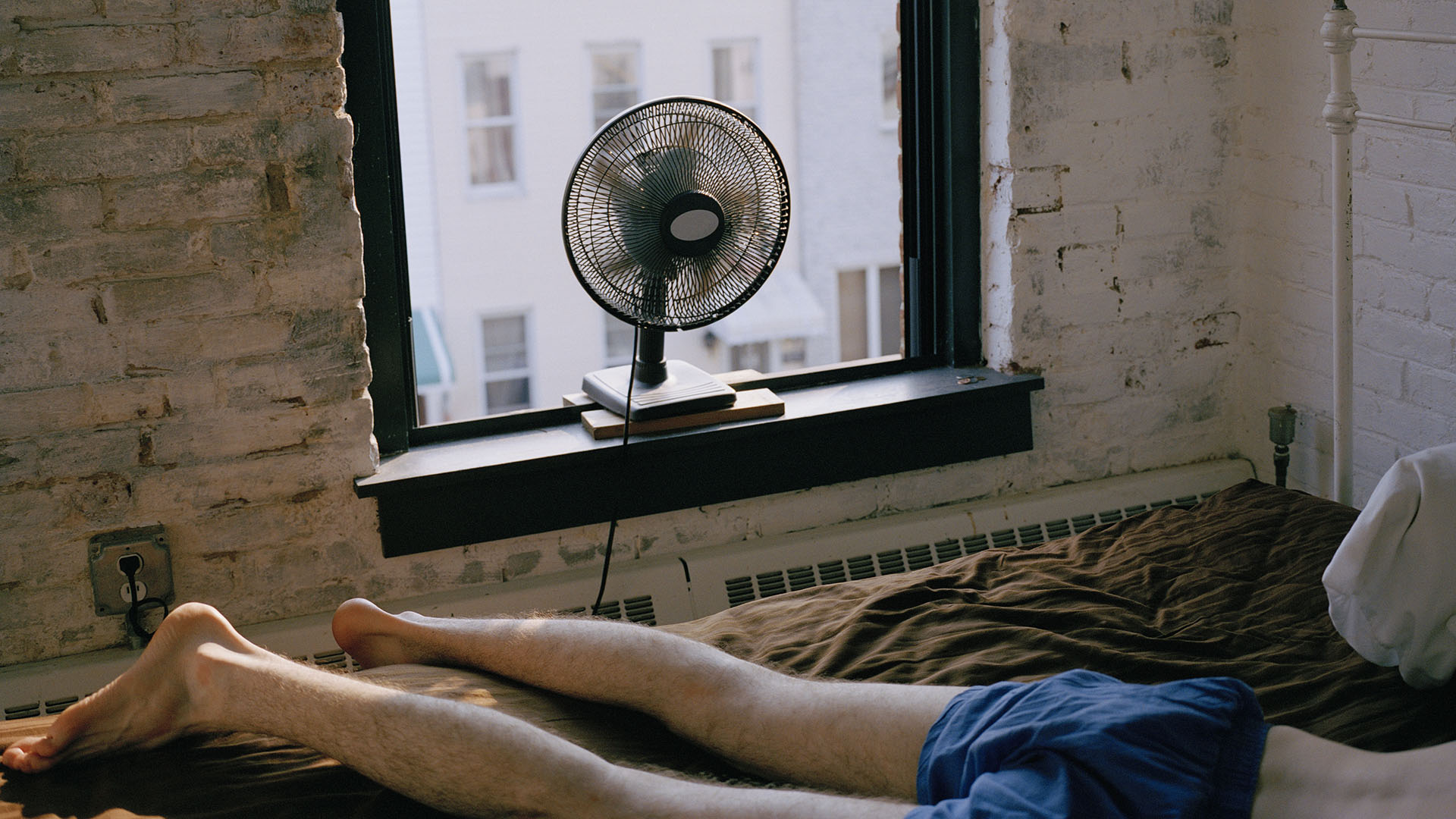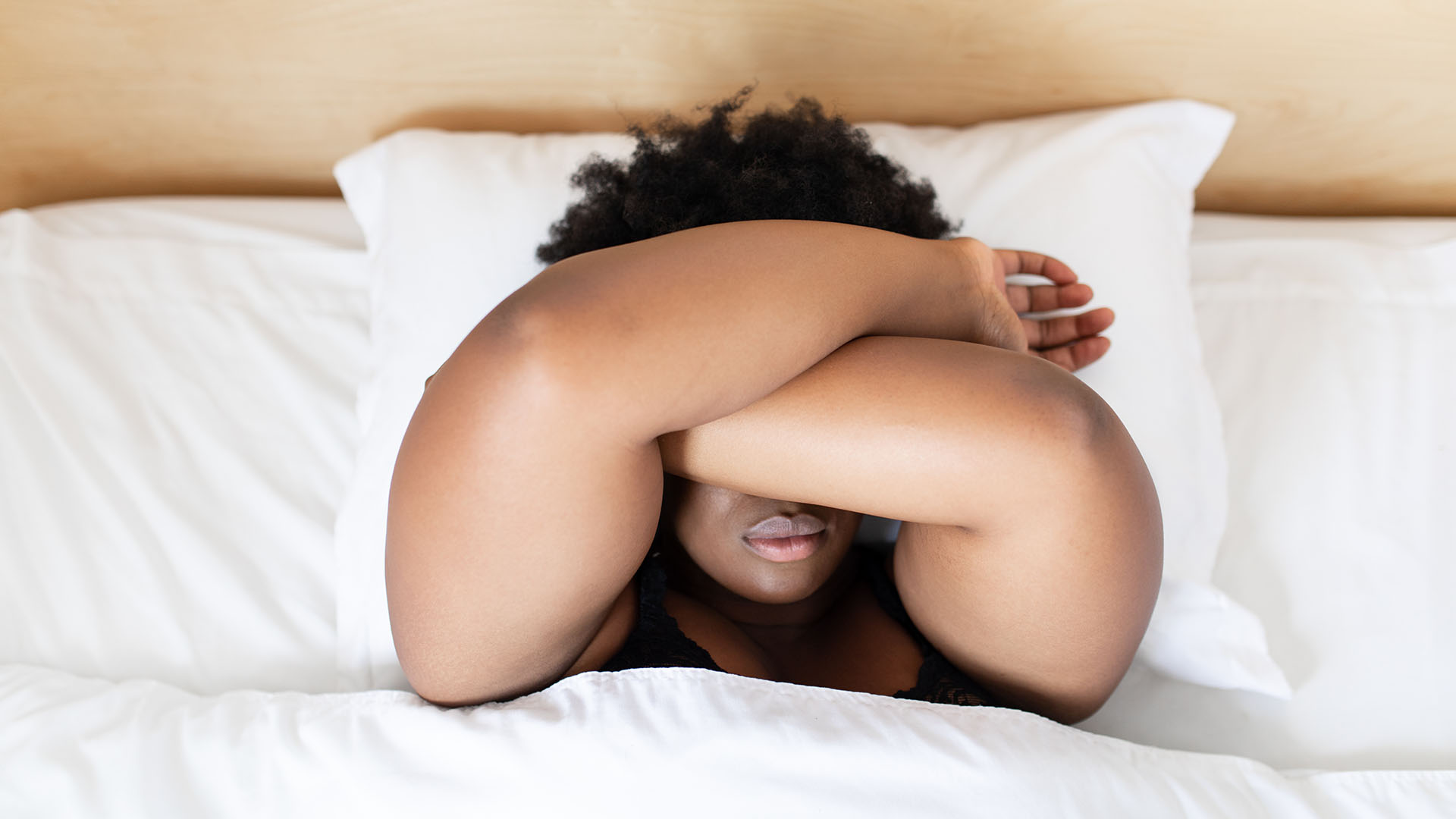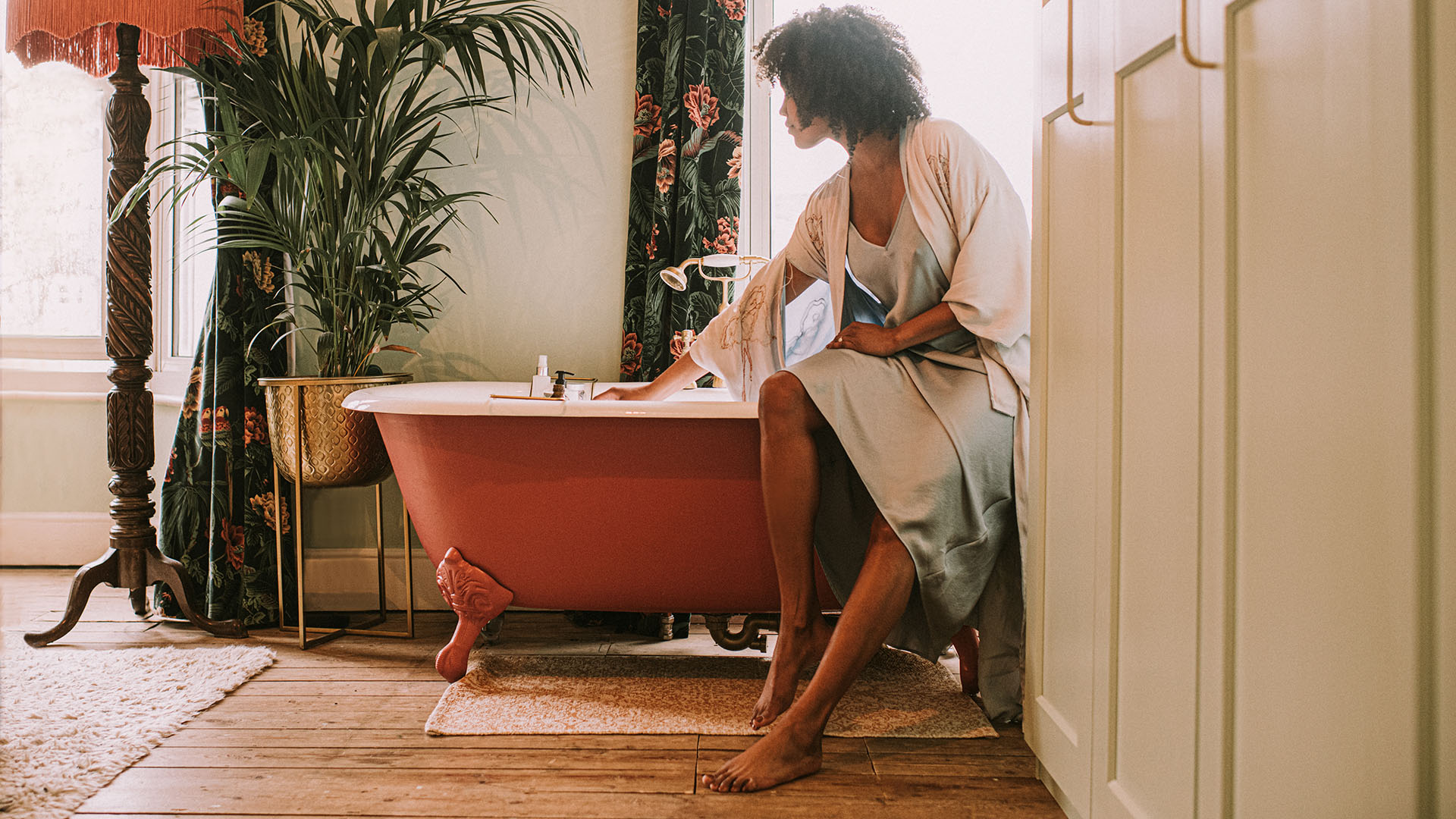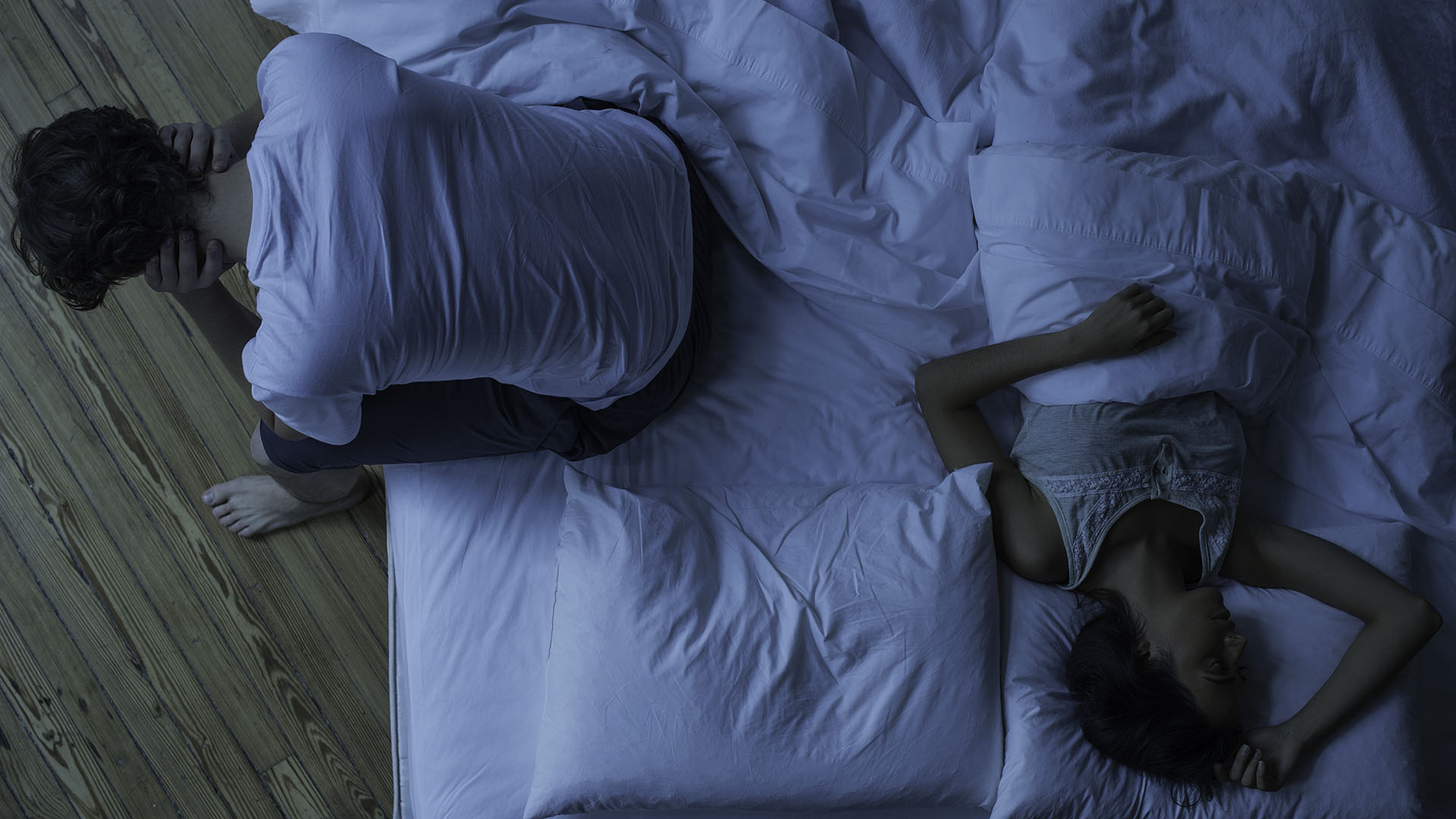
You might enjoy sunny weather during the day, but those higher temperatures aren't so much fun at nighttime. As we move into summer (and the UK heads for a heatwave), it's worth considering your evening routine and bedroom setup to make sure you're giving yourself the best chance of a good night's sleep.
There are plenty of hacks and tips flying around, but some are more effective than others. We spoke to Suzy Reading, a psychologist specializing in wellbeing, to hear her take on the hot weather sleep hacks worth paying attention to, and the ones that don't really work.
Let's take a look at the big summer sleep mistakes you're probably making, plus some hacks that do work to try instead.
Mistake #1: Sleeping naked
If it's really, really hot, it's tempting to strip off totally for bed. More fabric = extra heat, right? Suzy, who works with home comforts brand Kudd.ly, says pyjamas are better, provided you pick the right fabrics.
Memory foam can sleep hot, and even a good-quality all-foam mattress will almost always be warmer to lie on than a hybrid mattress with a spring layer. If overheating at night is your main sleep problem, you might want to consider investing in one of the best cooling mattresses, designed specifically to tackle this issue.
"I’d recommend opting for loose fitting, airy, light garments in natural fibers such as cotton, silk, eucalyptus or bamboo," she says.
"I wouldn’t recommend sleeping naked, as much as this might appeal, because sweat then collects on your skin rather than being absorbed by the fibers of your clothing and cooling you down. In addition to your own body temperature dropping when you sleep, ambient temperature can also drop at night, so light sleepwear will keep you more comfortable and promote better sleep.”

Mistake #2: Eating too late in the evening
Lighter evenings and warmer temperatures mean it's tempting to shift your evening mealtime back to make the most of it. Beware of eating too late, though, so your body is still digesting when it's time for bed. In particular, Suzy suggests avoiding foods and drinks that increase your body temperature, including spicy or acidic food, and fried, high fat food.
Suzy also recommends steering clear of "fermented foods like teriyaki or soy sauce, tofu, and miso, also citrus fruit, cured meats and aged cheeses" as these contain the amino acid tyramine, which can "increase brain activity and make it harder to fall asleep". (That's one of the theories as to why cheese might cause nightmares.)

While we're ruining your evening, we should also tell you that late-evening alcohol is a bad plan too. " Alcohol diminishes the quality of sleep and causes micro wake-ups that you might not be aware of, but which leave you feeling depleted even after a decent number of hours of sleep," she says.
Generally, although it's of course important to ensure you're drinking enough water when it's hot, Suzy reminds us that it's important to time it right. "Aim to get the bulk of your hydration earlier in the day, rather than guzzling water in the evening resulting in inevitable night time trips to the loo.” Here's more on when to stop drinking before bed, with advice from a urologist.
Mistake #3: Focusing on cooling yourself down
Stick with us here… you do want to cool down for bed, but one good way to achieve that is actually by warming yourself up before bed. "Taking a bath 1-2 hours before bed has been scientifically shown to help you get to sleep," says Suzy. "It works by drawing your core heat to your extremities where it is released. While the warmth of the bath is relaxing, it's the dissipation of core body heat when you get out that actually promotes sleep."
When it is time to sleep and your body isn't feeling especially chill, Suzy suggests having a cooling facial mist in your fridge, ready to spritz on your face.

Summer sleep hacks to try instead
All clear on the things you need to avoid? Here are a couple of less well-known tricks that could actually help you sleep better when temperatures are soaring.
Hack #1. Separate bedding
Sleeping next to another sweaty body isn't going to help you feel cooler. If co-sleeping is keeping you up, summer is a great time to experiment with sleep divorce – i.e. sleeping in separate beds, to help both of you get some better rest.
Lightweight natural fibers are the best choice for summer PJs, and that goes for your bedding too. Suzy suggests looking for cotton, linen, silk or bamboo bedding for maximum breathability. Colour can make a difference too. "Lighter shades reflect daylight and stay cooler unlike darker colors that absorb light and heat coming through your windows," she adds.
"There are many ways to connect other than co-sleeping and if sleeping in separate beds provides a way to get better quality shut-eye, there are fewer things that boost the health of our relationships than good sleep!" says Suzy.
However, that's not an option for many of us. A good alternative is to opt for separate covers. "A simple way to more effectively optimize your personal sleep environment is to use separate coverings so you can tailor it to your preferences and reduce the possibility of bed time tug-o-wars. Each having your own sheet or duvet, in the material and thread count of your choice, can help.”

Hack #2. Supercharge your evening routine
A regular sleep routine, made up of relaxing activities, is a good idea at any time of year. As well as physically helping your body wind down for bed, it also creates a connection so your brain comes to associate those activities with getting ready for sleep.
There are a few tried and tested techniques known to help you drop off quicker. The Military Sleep Method was developed to help members of the military fall asleep quickly in less-than-perfect situations, while the body scan sleep technique will help relive tension.
However, if the temperatures are soaring, your usual routine might not quite be working the same magic it usually does, and Suzy recommends tempering your expectations and making peace with the fact that you might not drop off as easily as you usually do.
She also suggests supercharging your relaxation routine. "We need a toolkit of ways we can relax when sleep is hard to come by – guided relaxation, breathing practices, yoga nidra, audio books, and restorative yoga poses like legs up the wall," she says.
As well as helping prepare the mind and body for sleep, they can also promote a restful state that's a good second-best alternative if sleep just isn't happening. If that is the case, Suzy recommends following the 15-minute sleep rule, which involves getting out of bed and doing something mindless in another room until you feel ready to return to bed. "Given that the inability to relax is one of the biggest barriers to sleep, weaving these restorative, stress busting practices into your day will also help.”







